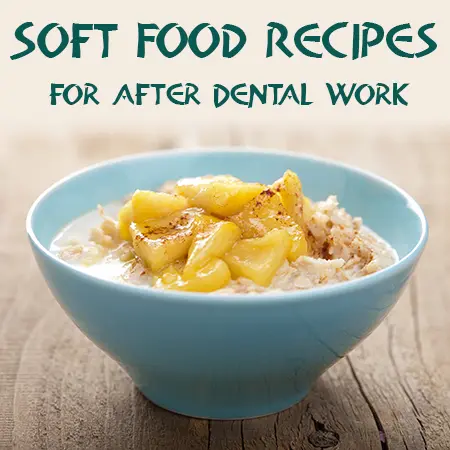 You did it! You got the consultation, booked the appointment, and you actually showed up on the big day. You saw Dr. Hardy or Dr. Wilson and now all that has left you hungry! The question is: what can you eat after having dental work done? You need some soft food recipes!
You did it! You got the consultation, booked the appointment, and you actually showed up on the big day. You saw Dr. Hardy or Dr. Wilson and now all that has left you hungry! The question is: what can you eat after having dental work done? You need some soft food recipes!
For some of us, it’s nostalgic to remember having a frozen treat after the dentist when we were kids. Depending on how extensive your dental work is (be cautious of what you consume in the days following major dental work!), you’ll find that milkshakes only get you so far.
Many foods can be troublesome after dental surgery or extensive dental work. Ask Cornerstone Dentistry their recommendation about specific foods and how long you should avoid them. Your Anderson dentists can be an especially helpful resource for patients navigating what to eat after dental restoration services. Here are some soft food recipes that will treat your mouth and your body well.
Breakfast
For a warm breakfast, oatmeal topped with tiny pieces of cooked apple and cinnamon will be delightful enough to make you forget that you’re on a post-dental work diet. Scrambled eggs with cheese are a safe and satisfying option for the savory lovers.
Lunch
Lunchtime may be hard to navigate if you’re leaving out crunchy, chewy food. Try a healthy soup with small, well-cooked ingredients like sweet potato and lentil stew. You can make bread easier to eat by dipping it in the broth.
Snacking
Smoothies are always good for patients with a sweet tooth – just steer clear of using fruits that have seeds. Add sugar-free yogurt for extra protein and healthy calories.
Dinner
Try roasting a variety of vegetables at dinnertime. Cut carrots, parsnips, squash, and zucchini into pieces of equal size, toss them in olive oil and seasonings, then roast them slowly.
If you need important dental work, contact your Anderson dentists Cornerstone Dentistry to schedule an appointment, and then start making that healthy grocery list!
The content of this blog is not intended to be a substitute for professional medical advice, diagnosis, or treatment. Always seek the advice of qualified health providers with questions you may have regarding medical conditions.

